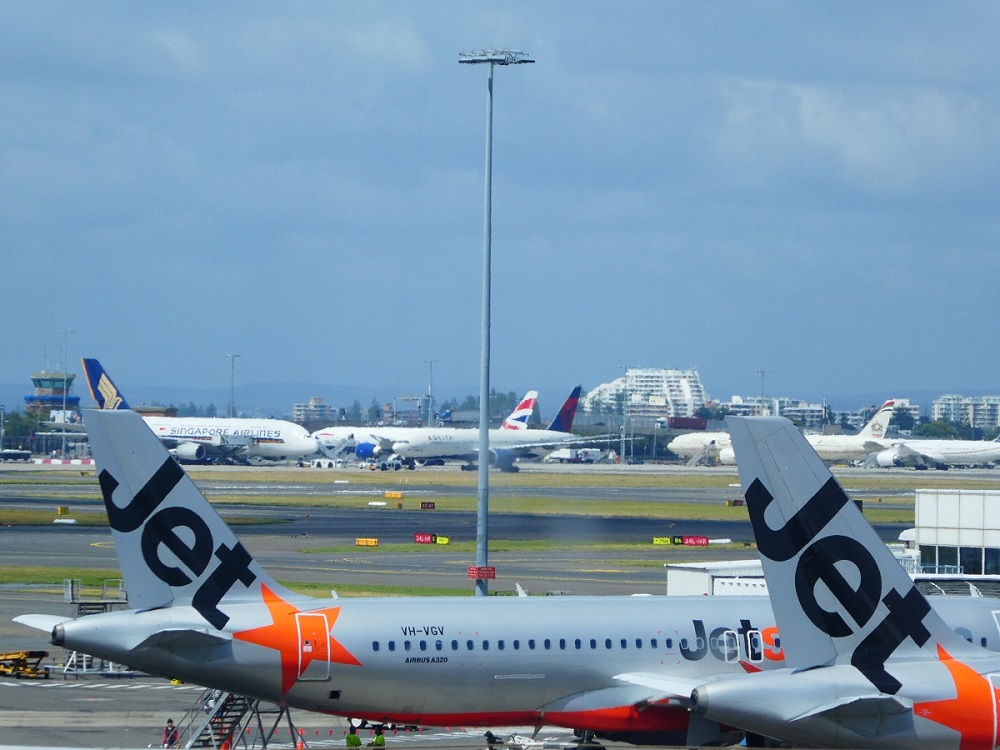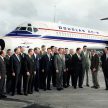
AIRLINES in Australia and New Zealand are following the lead of their counterparts in the US and Europe to form a new trans-Tasman industry lobby group.
Airlines for Australia and New Zealand (A4ANZ) will be chaired by former Australian Competition and Consumer Commission boss Graeme Samuel and will be governed by a board made up of representatives from member airlines.
It will pursue reform on public policy issues that affect aviation and the economy such as airports, taxation and fees as well as access to efficient infrastructure and broader regulatory reform.
The new group will be funded by Australasia’s four biggest airline groups and members are Air New Zealand, Qantas, Jetstar, Regional Express, Tigerair Australia and Virgin Australia.
The move follows the success of similar groups such as Airlines for America (A4A) and will give the industry a voice in politically sensitive areas in which individual airlines are sometimes reluctant to speak.
It will also give the airlines a lobby group equivalent to other travel-related industries such as tourism and airports.
And its seems airports will be high on the new group’s agenda, with Air NZ chief executive Christopher Luxon, Qantas boss Alan Joyce, Virgin chief John Borghetti and Rex executive chairman Lim Kim Hai all singling out the facilities in provided comments.
“Australia and New Zealand must compete for visitors on the world stage against many other attractive destinations,’’ Luxon said.
“To be competitive we must continue to improve cost and quality in all parts of the travel experience but we are constrained by a legacy of under-investment and over recovery at key airports. A4ANZ will add its voice to that ambition”.
Joyce noted that airport fees and charges continue to increase while airlines were offering fares at levels significantly cheaper than they were over a decade ago.
“A4ANZ’s goal is to achieve regulatory reform that will promote a competitive and sustainable airline industry in the interests of Australian and New Zealand travellers,” he said.
Virgin's John Borghetti said: “Aviation is one of the greatest enablers of tourism, trade and economic growth in our region, so it’s absolutely critical that airports operate efficiently and that investment in infrastructure benefits travellers.”
Rex executive chairman Lim Kim Hai said A4ANZ was critical for regional communities as major airports were “all too ready to sacrifice critical regional interests”.
“Rex looks forward to working with Professor Samuel and the Board to ensure the sustainability of all stakeholders big or small in the aviation industry,” he said.
Australia’s competition watchdog said earlier this week that the nation’s four biggest airports had increased the amount they charge airlines to handle passengers by a collective $A1.57 billion over the past decade.
An annual report by the Australian Competition and Consumer Commission found that profit margins ranged from 46.7 per cent at Sydney Airport to 33.5 per cent in Perth. Brisbane came in at 44.9 percent and Melbourne at 38.2 per cent.
The report found airports were recovering substantially more aeronautical revenue per passenger than a decade ago as they moved to offset increased costs per passenger and grow profit margins.
“The ACCC estimates that over the past decade, these airports have collected $A1.57 billion more in revenue from airlines than they would otherwise have collected if average prices were held constant in real terms,” ACCC chairman Rod Sims said. “Despite these much higher revenues per passenger, ratings of service quality are not materially different from those seen a decade ago.”























